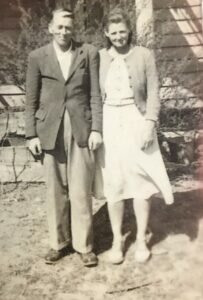For the past few years, Grace Woodard has taken used books and crafts to sell at the local farmer’s market in Murfreesboro, NC. Each month, she takes the money she’s made, counts it, and splits it up.
“I thought, why don’t I just divide up this money between different charities? I’ve got everything I need, let me give the money to people who are actually going to use it and do stuff with it,” Grace, 22, said.
She sends money off to the Baptist Children’s Homes of North Carolina, buys items all year long to fill Operation Christmas Child shoeboxes for Samaritan’s Purse, and supports the work of a missionary in Africa she found who is also named Grace Woodard. Last year, she started sending ProLiteracy a monthly letter with a donation enclosed.
As it turns out, boredom had led Grace to find a new hobby, which unexpectedly set her on a path to learning about adult literacy and inspired her to support the work of ProLiteracy.
Looking for something to do in 2017, when she was just 16 years old, Grace started researching her family’s ancestry. Since then, genealogy has become something of an obsession. She’s followed leads locally and to nearby counties and states.

Curtis and Mary Martin, Grace Woodard’s great-great grandparents.
Like many families, she found there were enough misgivings, feuds, and double-crossing to base a good story on (which she’s writing, by the way). But between all the drama, she also uncovered that multiple relatives never learned to read or write, including her great-great grandfather, Curtis Martin (pictured above with Grace’s great-great grandmother Mary Martin).
“I don’t know the whole circumstances why, but I know he had a first-grade education,” Grace said. “There was a piece of land that Curtis had to sign for and there’s just a picture of an X.”
She also found documents signed by other family members whose signatures, she said, look like children’s handwriting. She counted at least three people in her family who, in the 1920 census, truthfully identified themselves as unable to read and write. She’d been told her great grandmother, Mildred, could write only her name.
“My dad can remember Curtis sitting in a chair, looking at a newspaper and turning it all different ways to see which way it went,” she said.
What began as a journey into her family’s history has led Grace, an avid reader, to want to learn more about adult literacy and what is being done currently.
“Looking it up, I could see a lot about childhood literacy, but it seemed like no one was really focusing on the adults,” she said.
Then she found ProLiteracy.
Now, with her monthly gift, she has a part in improving the histories of other families through the power of literacy.
Help low-literate adults reach their full potential with a donation to ProLiteracy.